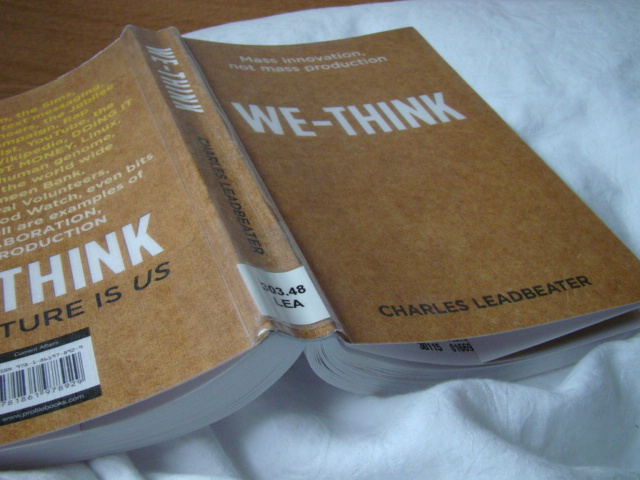We Think
We Think, by Charles Leadbeater is all about communities, mass innovation, the power of mass creativity and how it all fits together within the internet.
Watch a nice little video that illustrates what this book is all about, I like Leadbeaters style - black and white, handwriting and simple statements get across his complex ideas really well.
This book is different from any other book I have ever read because of the way it was put together and distributed. The first three chapters can be read online, which is unusual. It started on-line through a unique experiment in collaborative creativity involving hundreds of people across the world.
You are what you share. That is the ethic of the world being created by YouTube and MySpace, Wikipedia and Facebook. WeThink is a rallying call for the shared power of the web to make society more open and egalitarian.
We Think reports on an unparralleled wave of collaborative creativity, as people from California and China devise ways to work together that are more democratic, productvie and creative. This book is a guide to the new culture of mass participation and innovation - the generation growing up with the web will not be contect to remain spectators. They weant to be players and this is their slogan: we think therefore we are.
He discusses the idea of a commons, which I found really interesting. A commons is anything like the street on which we drive, the skies through which planes fly, public parks and the beaches on which we relax. A commons belongs to a community- sometimes a tightly defined community - sometimes everyone.
A day on a public beach exemplifies the commons in action. Beaches are ordered without being controlled. No one is in charge. A publicj beach is a model civil space - tolerant, playful, self-regulating, democratic in spirit. As the day unfolds everyone takes their spot, adjusting to where everyone else has pitched their towel. Normal rules do not apply because there is no private property. The web is bringing the spirit of the beach into the sharing of ideas and information.
The more content we create, blogs, videos, myspace, bebo etc.. the more we need We Think to sort it. When you think of pre-industrial forms of organisation - the commons, peer to peer working, community innovation and folk creativity. These are all very old.
Where as if you mix this with the brand new blogs and wikipedias etc, you have a new working model - a social form of creativity for everyone - giving us the capacity and tools to think, act and experiment.
Another book which I have been reading online is Back of The Napkin by Dan Roam it is easy to read and digest. I have also been interested in visual thinking within design and this book is helping to to visualise my ideas more freely. "Doodle aloud and erase even louder...the combination of simultaneous creation and narration is magic..." Check out his blog , I am keen to try out the 'best ever visualisation tool' that we all have on our computer within Microsoft powerpoint.
I liked this phrasing on what The End of the World could potentially be. We Think is creating new ways for these conversations to emerge - conversations that enable people who combine their different skills, insights and knowledge to explore a problem.
I also liked Leadbeaters interpretation on language - service designers are striving to create a universal design language to help others understand and relate to the work they do.








